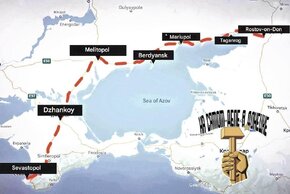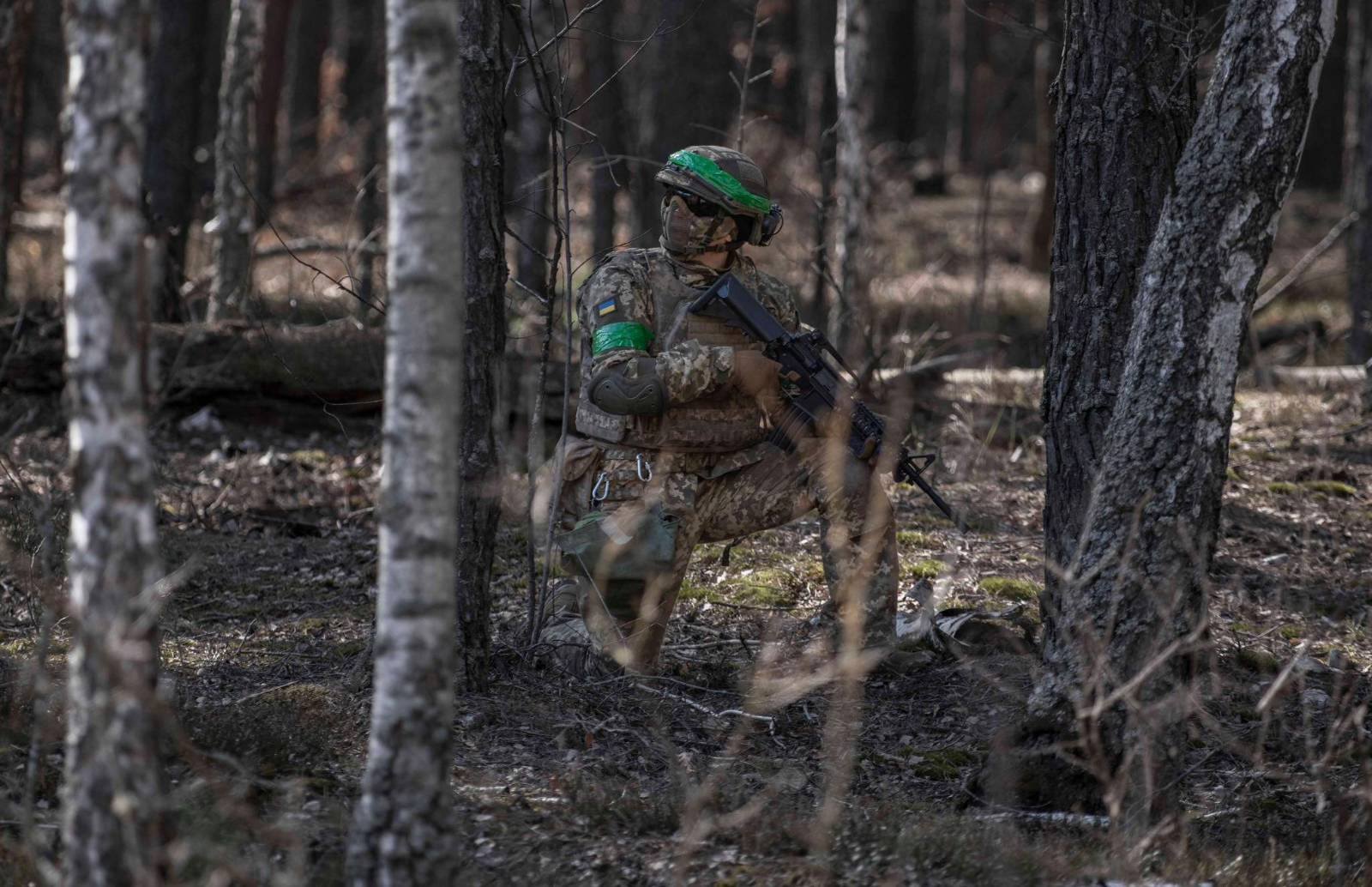Ukraine accepted a total ceasefire 40 days ago. Russia has persistantly rejected it.
Well of course they did. This has been discussed to death I think.
You are right. Putin wanted much more at the beginning of the Special Military Operation. However it's not thanks to Trump's peace initiative or some willingless to give something away. But only because his initial goals don't match the "reality on the ground" anymore.
I suspect they never matched the reality on the ground. Russia missed the changes within Ukraine that occurred from '14 to '22. In '14 Russia really could roll in and expect entire units to surrender and many local governments to shrug and simply accept the change in management. In '22 that was no longer the case.
Let's say that Russia doesn't have to give up anything that they already have.
They have to give up the only real leverage they have over Ukraine, continuation of hostilities. Without that, what chance is there of Ukraine ever recognizing occupied areas as actually Russian?
Ukraine is not willing to negotiate a deal that doesn't make sens for them. If they recognise Crimea as Russia, then the waters around Crimea becomes automaticaly Russian waters. It will mean that any activity of the Ukrainian navy (especialy the unmanned navy) would be illegal and could be denounced as provocation in peace time. If the water are still Ukrainians, then the opposite is true: The presence of the Russian fleet would be seen as a provocation.
Under the terms of this deal, as we know them, this simply isn't true. If Ukraine took this peace deal, then Ukrainian naval operations off the coast of Crimea would be a provocation, but so would Ukrainian military operations in or against any occupied areas that aren't recognized as Russian. Again, is the point to end the war or to dial it down to a level where Ukraine doesn't have a real chance of state-level collapse? If the point is to end the war, and the ending involves accepting Russian control of occupied areas, even only de-facto, then you presumably don't intend to operate there.
Crimea is not the least recoverable province. If Ukrainians take Berdiansk and destroy the Kerch Bridge, Crimea will fall. Of course, it's not possible now as they are not able to do any of the two.
Strategically, Crimea is much more important for the defense of Ukraine, of Odessa in particular, than the Donbass. That's why Ukrainians talk so much about Crimea.
Of course. And L'vov isn't the least conquerable province for Russia. If they force the Dnepr, and take Kiev, L'vov will fall... complete nonsense.
Ok, out of the 5 provinces Russia controls most or all of, which do you consider the least recoverable? Don't forget to factor in which areas Russia will be willing to go the farthest to defend.
The composition of the population and how pro Russian they might be has little importance. It was much more important ten years ago. A civil resistance to Ukrainian occupation is very unlikely, IMO.
I guess if you don't care about the desires of the population it doesn't matter. Which of the two is the democracy again? Oh right, neither. Sorry, I'm forgetting.
I, personally, don't disregard it. The Russians do. Russians will never agree to an alternative which could replace NATO effectively (or be even more effective than NATO). It wouldn't make sens for them. The goal of refusing that Ukraine joins NATO is to prevent Ukraine to be defended by allies the next time Russia will attack.
And if you think that Russians won't attack one more time, think about the reason why they don't want Ukraine inside NATO...
This isn't true. NATO membership means the potential for NATO offensive facilities stationed there. And if the deal is signed, and the war is done, what exactly would prevent Ukraine from signing these agreements with France, Germany, and the UK? Even now nothing strictly speaking stops any of these countries from declaring that they will go to war with Russia over Ukraine. They obviously aren't willing to do it, but that's not a question of agreements or of Russian desires. The main question of security guarantees for Ukraine isn't Russia. It's the willingness of EU member states and other non-US NATO countries to shoulder that burden knowing that there's a good chance the US won't back them up if things get unpleasant. If Europe is willing, Russia won't be able to do much about it. Russia is banking on the idea that Europe won't be willing, and they may be right. But again, a peace deal that says Ukraine won't join NATO in no way substantively or formally prevents other security arrangements. You'll notice that Russia takes issue with the presence of western troops in Ukraine, but hasn't made a peep about security guarantees.
Ukraine will only agree to a peace deal which won't jeopardise their defense against a renewed Russian attack in the future. It won't make sens for them to sign a deal which will make another attempt to invade their land easier. That's why they don't want the Russian Fleet along the west coast of Crimea, that they want free hand to strike "inside Ukraine" if necessary, and want either NATO membership or a an equivalent alternative.
How does the deal we recently saw do that? The only reason the Russian navy isn't currently on the west coast of Crimea is that this is impractical. They're vulnerable to Ukrainian unmanned boats, and don't have much of a mission to do there. If hostilities resume, this will all still be the case, provided Ukraine continues to maintain a robust unmanned boat capability, and Russia doesn't come up with an effective counter. But here's the kicker, these considerations all still apply even if the war continues. If Ukraine right now somehow fails to produce unmanned boats or Russia produces an effective counter, the VMF will once again be off the west of coast of Crimea.
I understand your argument: Russia is still gaining ground. But it's better for Ukraine to lose ground at a very slow pace now than lose one more large region - or the whole country - suddenly in a few years. They have been through this twice. They won;t allow it to happen a thrid time. They would rather continue to fight than paving the way for a future invasion.
They're not only losing ground, that's the least significant part currently. They're losing population, and the longer the war goes on the fewer people will return to Ukraine. They're also losing economic development, and their infrastructure is under constant attack. Ukraine can keep fighting this defensive war, until they can't. And when they can't, Russia will have a negotiating position that will make the current one look downright mild. Unless Ukraine has a path to victory, they need to negotiate before things get worse for them.
Nobody said that it will be as easy as with US aid. If the loss of US military aid can be compensated with other sources, but at the same time Russia increases their fire power, then of course, it will be more difficult for Ukraine.
The point is that the more time passed by, the less Ukraine is reliant on US aid.
I'm not sure this is true. Ukraine got a large boost in US deliveries in Q4 2024. Very little since then. I think the second half of this year, if no new large US aid packages come, will show us how reliant Ukraine is or isn't on US aid. For context the most common IFV in Ukrainian service is the BMP-1, the second most common is the BMP-2. But the third most common is the Bradley. Marder deliveries haven't reached those numbers yet, and while they could eventually, they're coming slowly and in small batches. How about the M113? It's become a real workhorse of the Ukrainian military. How many of them were sourced from the US directly? How many more could be sourced from the US but won't be? Ukrainian domestic production can make up for munitions but for platforms, they're producing a howitzer, and some mediocre armored cars. I don't think Ukraine can domestically mass-produce APCs, IFVs, MBTs, or complex AA. I think in those areas Europe will have to step up.
They certainly over estimated and maybe still overestimate this leverage. They think that they can share the pie with Putin and that Ukrainians have no way to oppose the partition and the plunder. It's a grave miscalculation.
Let's see if the resource deal goes through. That will tell us a lot about Trump's leverage of lack thereof.








